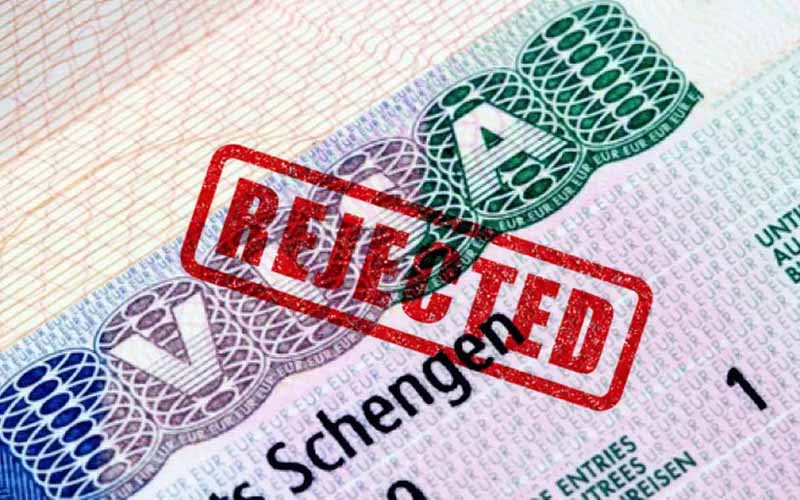A staggering €60 million (about $67.5 million) has been lost by African citizens in 2024 alone due to denied Schengen visa applications, according to a new analysis by the London-based LAGO Collective. This jaw-dropping figure, paid in non-refundable visa fees, has reignited fierce debate over what many are calling an exploitative and discriminatory visa system that disproportionately targets African nations.
The financial loss is not just an economic issue, it’s a human one. Thousands of dreams were dashed, from tech entrepreneurs and artists to students and professionals, many of whom paid hefty fees only to face rejection without clear justification. With rejection rates in countries like Nigeria, Ghana, and Senegal hitting record highs, critics have labeled the practice a form of “reverse remittances”, a disturbing trend where the world’s poorest send money to the richest, and receive nothing in return.
According to European Commission data, over 11.7 million short-stay Schengen visa applications were filed globally in 2024, with 1.7 million denied. African nations bore the brunt of these rejections. Nigeria alone had 50,376 visa denials, nearly half of its total applications. With each application costing €90, Nigerians alone lost more than €4.5 million ($5 million) in just one year.
In Ghana, the rejection rate stood at a staggering 43.6%, while Senegal faced 46.8% denials. These numbers confirm a consistent trend: African applicants face the highest rejection rates globally. In 2022, seven of the top ten countries with the worst Schengen rejection rates were African, including Algeria, Guinea-Bissau, and Nigeria.
Marta Foresti, founder of LAGO Collective, says the situation amounts to financial injustice. “The poorest countries in the world pay the richest countries in the world money for not getting visas,” saysva recent report. Foresti coined the term “reverse remittances” to describe the growing capital drain from African citizens to European coffers.
Read also:
- UK introduces new student, health worker visa regulations
- US releases 2025 Visa waiver list, excludes Nigeria all African Nations
- UK extends seasonal Worker Visa Scheme for 5 years as concerns over worker exploitation linger
For many Africans, this isn’t a one-time loss. Professionals like Nigerian gaming consultant Joel Anyaegbu have faced multiple denials despite submitting extensive documentation. His rejected application to attend a tech conference in Barcelona came after two attempts, leaving him both financially strained and professionally stifled.
In July 2024, visa fees increased from €80 to €90, amplifying the financial burden on low-income applicants. In many cases, this represents a significant portion of an individual’s monthly income, an expense that vanishes without a trace if the visa is denied.
While some officials argue that historical behavior, such as overstays by previous applicants, shapes current rejection patterns, critics say this paints all African applicants with the same brush. In 2024, Nigeria’s visa rejection rate rose to 45.9%, trailing only Bangladesh and Senegal globally.
South African academic Sikhumbuzo Maisela notes that while individual misconduct plays a role, the current system lacks transparency and empathy. Applicants rarely receive detailed explanations, and successful appeals are so rare that most people simply reapply, paying again and again.
The financial hemorrhage isn’t limited to Schengen states. The UK’s increasing visa fees have compounded the crisis. From £100 in early 2024, the fee rose to £115 in July and £127 by April 2025. Analysts estimate that failed UK visa applications in 2024 cost applicants £50.7 million ($68.8 million), with Nigerians alone losing £2 million.
Controversies, such as the UK Home Office’s initial denial of visas for 47 members of the Afghan Youth Orchestra, later overturned following media backlash, illustrate the deeply flawed nature of current visa systems.
The visa restrictions also strike a blow to cultural and creative industries. Renowned Ghanaian-Scottish architect Lesley Lokko described the high fees and visa hurdles as “outrageous,” after four members of her Ghanaian team were denied visas to the 2023 Venice Biennale. Many were questioned as though they were low-skilled laborers, not professionals.
With mobility partnerships between Africa and Europe under strain, calls for reform are growing louder. The African Union and European Union have both pledged to improve legal migration channels, but the current system tells a different story—one where applicants are left without recourse, refunds, or even reasons.
The European Commission insists applicants can appeal, but admits that it does not comment on individual cases. With so few appeals succeeding, critics argue that a lack of accountability is enabling discriminatory practices.
For millions of Africans, visa rejection isn’t just about denied travel—it’s about stolen time, lost money, and shattered opportunities. The $67.5 million lost in 2024 alone underscores the need for immediate, transparent, and equitabl
